| | | | | | | Presented By Babbel | | | | Axios World | | By Dave Lawler · Aug 29, 2022 | | Welcome back to Axios World. - Tonight's edition (1,869 words, 7 minutes) starts with a Ukrainian offensive before stops in Baghdad, Tripoli, Islamabad, and the South Pacific.
Thanks for reading. | | | | | | 1 big thing: Ukraine launches Kherson counteroffensive | 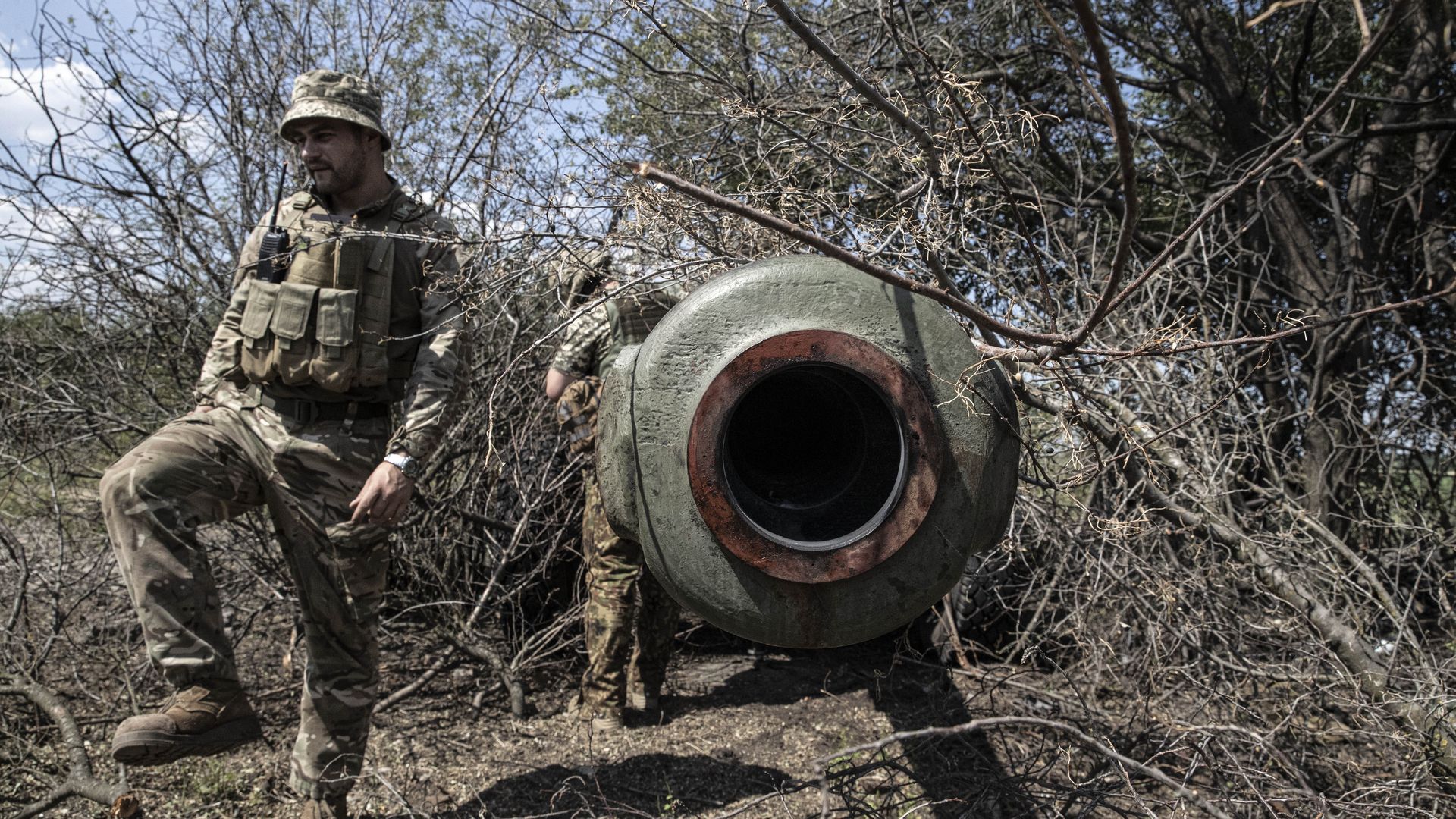 | | | Ukrainian artillerymen on the frontlines near Kherson. Photo: Metin Aktas/Anadolu Agency via Getty Images | | | | Ukrainian forces today launched what appears to be their first major counter-offensive of the war, aiming to retake Kherson in the south of the country. Why it matters: Ukrainian forces bombarded Russian ammunition depots, command-and-control centers, and river crossings. The scale of the operation is not yet clear, but Ukrainian officials claimed to have breached Russia's "first line of defense" outside of Kherson. - Kherson (pre-war pop. 300,000) was taken in the early days of the invasion by Russian forces advancing north from occupied Crimea. It remains the only provincial capital to fall in six months of fighting.
- Ukrainian officials have been foreshadowing an offensive in Kherson for weeks, and Russia in preparation has roughly doubled its own force in the region, according to Poland-based firm Rochan Consulting.
- National Security Council spokesperson John Kirby noted that in order to do so, Russia has been forced to "deplete certain units in the East" — where a major Russian offensive has largely stalled — and is facing "manpower challenges."
Between the lines: So is Ukraine. Both sides have suffered heavy losses in four months of grinding warfare in the eastern Donbas region and are scrambling to train (and in Russia's case, to enlist) reserve forces. - While Ukraine has been successfully deploying longer-range rocket systems provided by the U.S. to conduct strikes far behind the frontlines, some analysts doubt that Ukraine has assembled the requisite manpower or materiel to conduct a major offensive on a well-defended city.
- Others have noted that Kyiv may have political incentives to move now, to lift morale, and reassure foreign backers by demonstrating momentum, even if the military outlook is dicey.
The big picture: Lacking the numerical advantages typically needed for a successful offensive, Ukraine may focus on cutting off Russia's forces in Kherson, rather than attempting to steamroll them. - Ukrainian President Volodymyr Zelensky offered no hints in an address tonight, insisting that Russian forces would be expelled from Ukraine, but adding, "You won't hear specifics from any truly responsible person. Because this is war."
- Even if Ukraine does proceed cautiously, the offensive likely marks the start of a third phase of the war, following Russia's initial three-pronged assault and the grinding battle in the Donbas.
What to watch: Another twist could come within days if Russia announces a sham referendum in Kherson as a pretext to annexing the territory into Russia, as Kirby has warned might happen. - Russia has already installed a puppet government, restricted the internet, mandated the use of the ruble, and started issuing Russian passports.
- The latest: Russian investigators confirmed today that a former Ukrainian lawmaker who defected to join that puppet government had been murdered in his home.
Meanwhile… The launch of the offensive comes as inspectors from the International Atomic Energy Agency (IAEA) head to Zaporizhzhia in southern Ukraine for an urgent examination of Europe's largest nuclear power plant, which has been damaged by shelling. |     | | | | | | 2. Global news roundup | 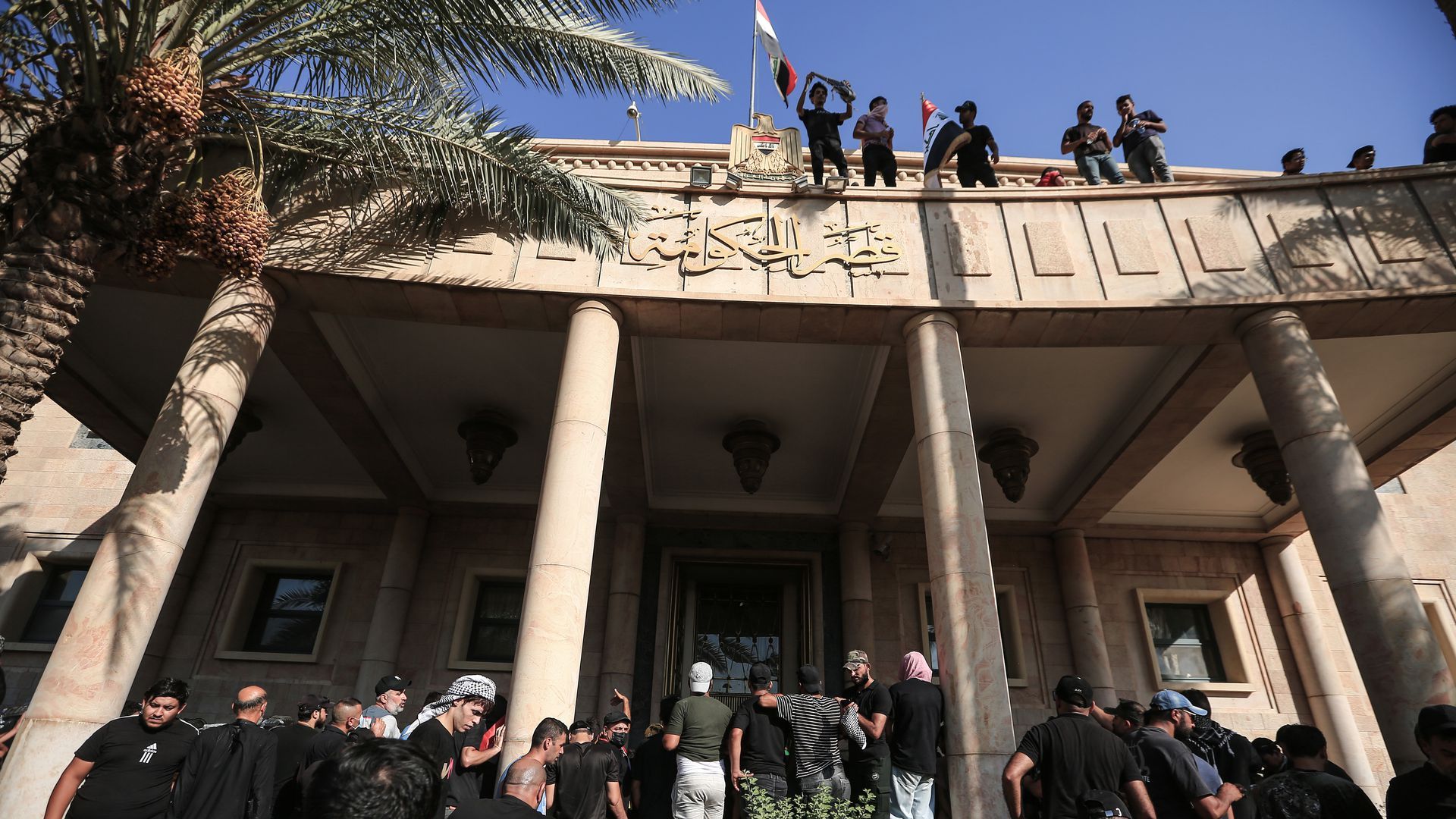 | | | Supporters of Shiite cleric Muqtada al-Sadr enter the government palace in Baghdad during a protest on Aug. 29. Photo: Ameer Al-Mohammedawi/picture alliance via Getty Images | | | | 1. At least ten people have been killed and more than two dozen injured in violent clashes in Baghdad sparked by Shiite cleric Muqtada al-Sadr's announcement Monday that he is quitting politics due to the country's political deadlock. - Driving the news: Hundreds of protesters loyal to al-Sadr stormed the palace today where the Iraqi Cabinet meets in Baghdad's Green Zone. Police responded with tear gas and live bullets.
2. Clashes in Tripoli over the weekend between forces loyal to Prime Minister Abdulhamid al-Dbeibah and to a rival claimant left 32 people dead and sparked fears of renewed civil war. - The effort to oust al-Dbeibah failed, but further violence is likely as the power struggle continues. Elections have been repeatedly delayed, contributing to the legitimacy crisis.
3. Supporters of Cristina Fernández de Kirchner, Argentina's former president and current vice president, clashed with police on Saturday after prosecutors requested that she be sentenced to 12 years in prison for alleged corruption. 4. Colombia's new leftist president, Gustavo Petro, has restored diplomatic ties with Nicolás Maduro's government in Venezuela. - That leaves just three countries in the region — the U.S., Canada, and Brazil — without formal relations with Caracas, per the WSJ.
5. Turkish pop star Gülşen is under house arrest on charges of "inciting hatred and enmity" after making a joke about religious schools. 6. One of three Dutch soldiers shot in Indianapolis on Saturday has died, per AP. The soldiers were in Indiana for training and were shot outside their hotel. |     | | | | | | 3. Pakistan's triple crisis | 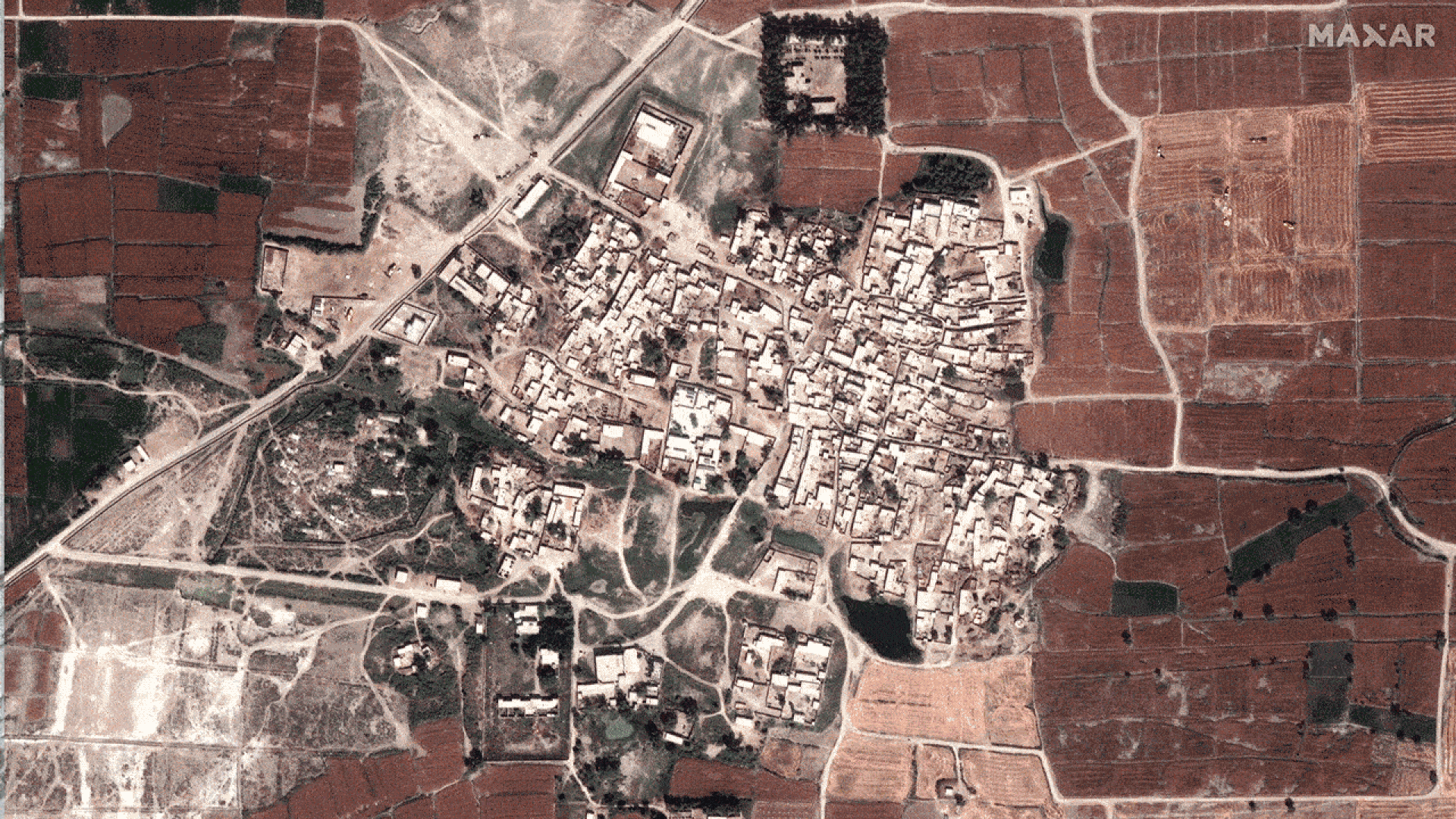 | | | Village and fields before and after flooding in Rajanpur, Pakistan as of August 28, 2022. Photo: Maxar | | | | The death toll from Pakistan's floods has crossed 1,100, and the country's climate minister said today that "one-third of Pakistan is underwater right now." - Officials estimate that over one million homes have been destroyed, and 33 million Pakistanis have been affected by the floods. The government is appealing for international aid.
- This is the heaviest rainfall Pakistan has recorded since 2010 when a previous monsoon killed more than 2,000 people and follows a prolonged period of drought. Pakistan is considered particularly vulnerable to climate change.
The big picture: The catastrophic flooding comes as Pakistan is already grappling with economic and political crises. - Pakistan is expected to avert an imminent default on its debt thanks to a $1.2 billion bailout announced Monday by the IMF. To secure the bailout and avoid default, Prime Minister Shehbaz Sharif's government has implemented austerity measures.
- But Pakistanis were already facing spiking prices for food and fuel, and the flooding threatens to make those struggles far worse in the near term. A factory worker in Karachi told the NYT that the price of tomatoes and other basic food items has quadrupled since the rains began.
- What to watch: Pakistan's finance minister was quoted in domestic media as saying Pakistan will re-open trade with India due to the flooding and price spikes.
Meanwhile, former Prime Minister Imran Khan is facing terrorism charges for remarks he made at a rally earlier this month. He's currently free on bail, but it expires on Thursday. Some of his supporters have threatened drastic steps if he is arrested. Go deeper: The flooding, in photos. |     | | | | | | A message from Babbel | | Start speaking a new language in just 3 weeks | | | 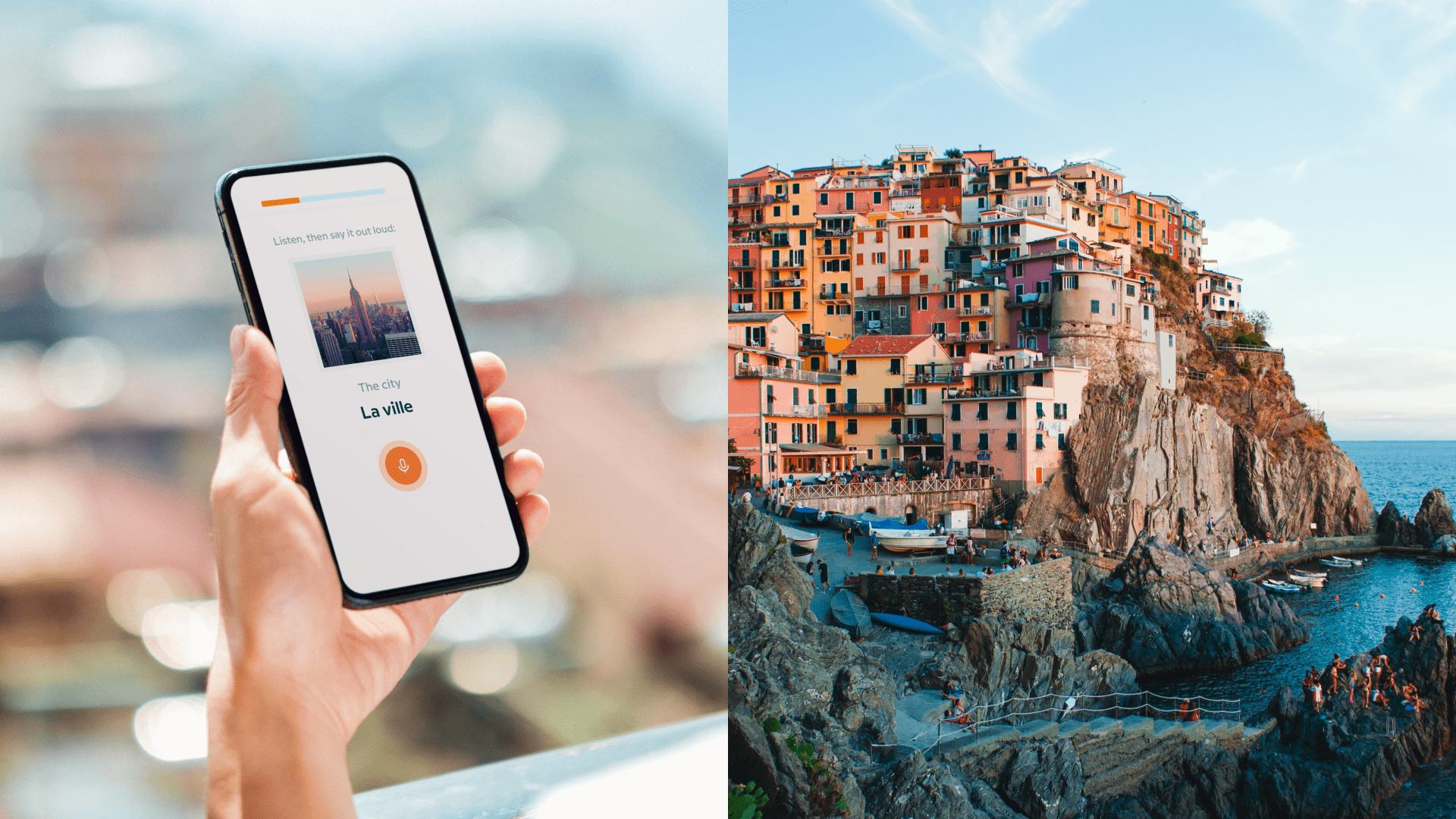 | | | | Babbel helps millions of people speak and understand a new language through its scientifically proven teaching method. The deets: The platform offers multiple ways to learn a language through daily lessons, podcasts, games, live online classes and more. Get up to 55% off your subscription. | | | | | | Bonus: Where in the World? | 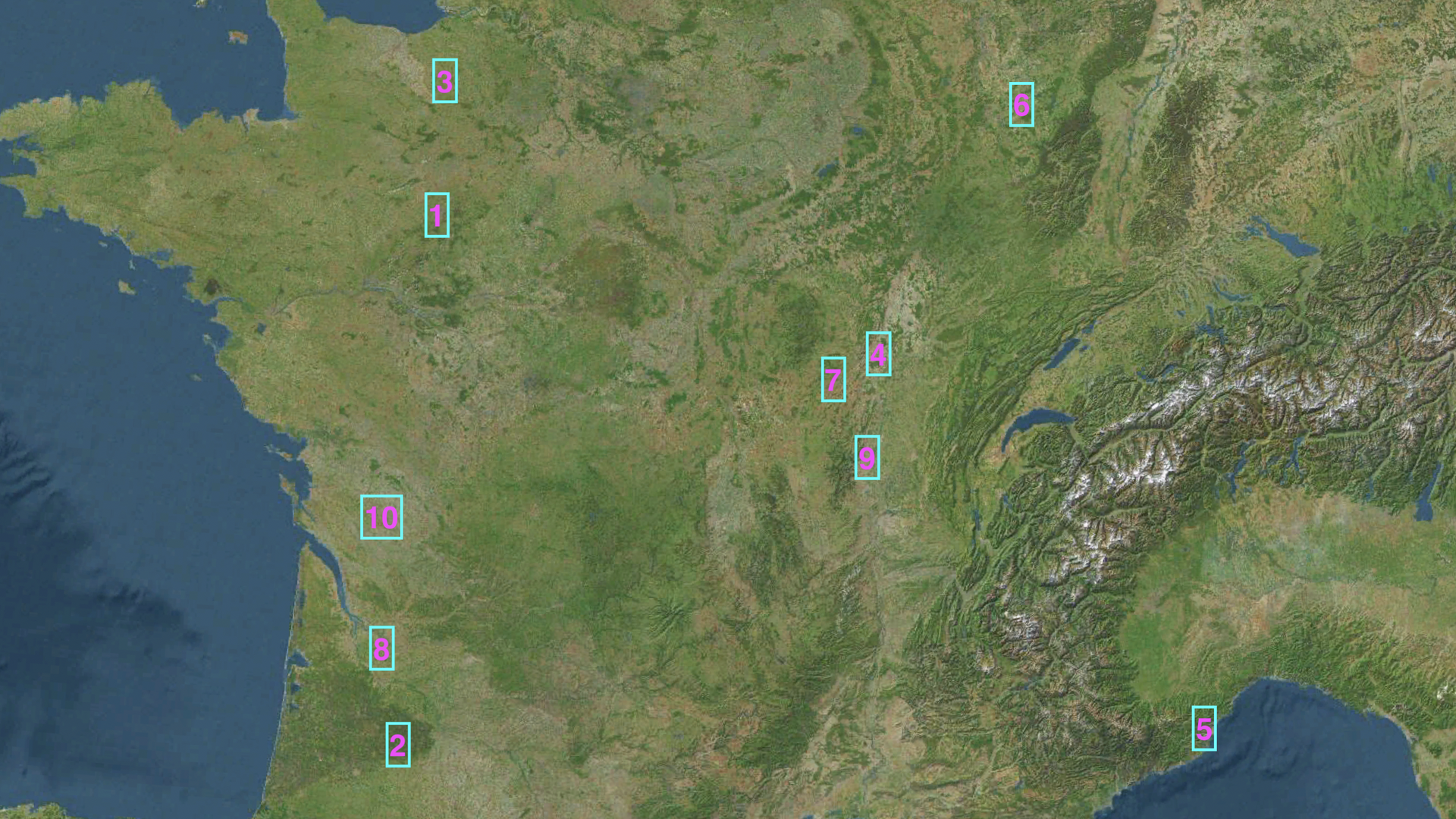 | | | Screengrab via Apple Maps | | | | For dinner this evening, let's take a culinary trip around France. Set out on the table, we'll have sparkling wine (#1), sheep's milk blue cheese (#2), this creamy cow's cheese from Normandy (#3), and charcuterie. You'll also find this condiment (#4). - We'll enjoy a summery salad (#5), and you can help yourself to a slice of this classic tart with eggs and bacon (#6).
- Next up, a hearty meat stew (#7) paired with a red blend from this renowned wine region (#8).
- Finally, this dessert involves a pear and red wine (#9), paired with this variety of brandy (#10).
Scroll to the bottom for answers. |     | | | | | | 4. Solomon Islands turns away U.S. Coast Guard ship | 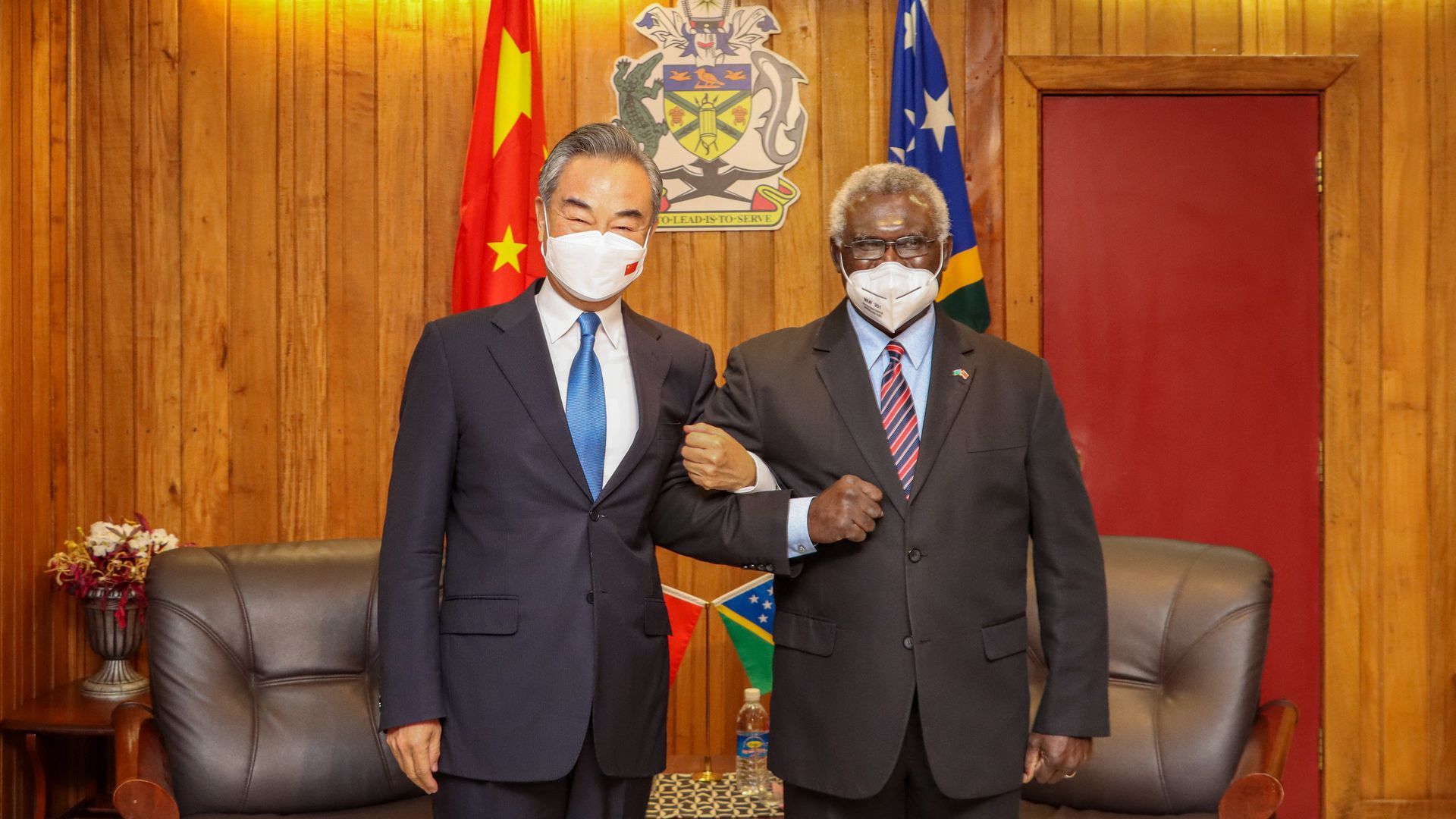 | | | Solomon Islands Prime Minister Manasseh Sogavare (R) meets with visiting Chinese Foreign Minister Wang Yi in Honiara in May. Photo: Xinhua via Getty Images | | | | The Solomon Islands did not allow a U.S. Coast Guard vessel to make a routine stop to refuel and resupply at a port in the Pacific island nation that has lately fallen under China's sphere of influence, Bethany Allen-Ebrahimian and I write. Why it matters: The Solomon Islands signed a security pact with China in April that the U.S. and Australia fear could allow Beijing to dispatch security forces there or even establish a naval base. Driving the news: The U.S. government requested diplomatic permission for the Oliver Henry, a Guam-based Coast Guard cutter, to make a routine stop in Honiara on Aug. 23 but received no response. - Coast Guard spokesperson Cmdr. Dave Milne told Axios the Coast Guard "respects the sovereignty of our foreign partners" and looks forward to "future engagement opportunities with the Solomon Islands."
- But National Security Council spokesperson John Kirby said the White House was "disappointed" by the "regrettable" decision, noting that the ship ultimately diverted to Papua New Guinea.
- "Clearly we've seen the Chinese try to bully and coerce nations throughout the Indo-Pacific to do their bidding and to serve what they believe their selfish national security interests are rather than the broader interests of a free and open Indo-Pacific," Kirby said, clarifying that he was not referring to this specific incident but China's actions more broadly.
- Read the full story.
|     | | | | | | 5. Europe moves toward wartime footing on gas usage | 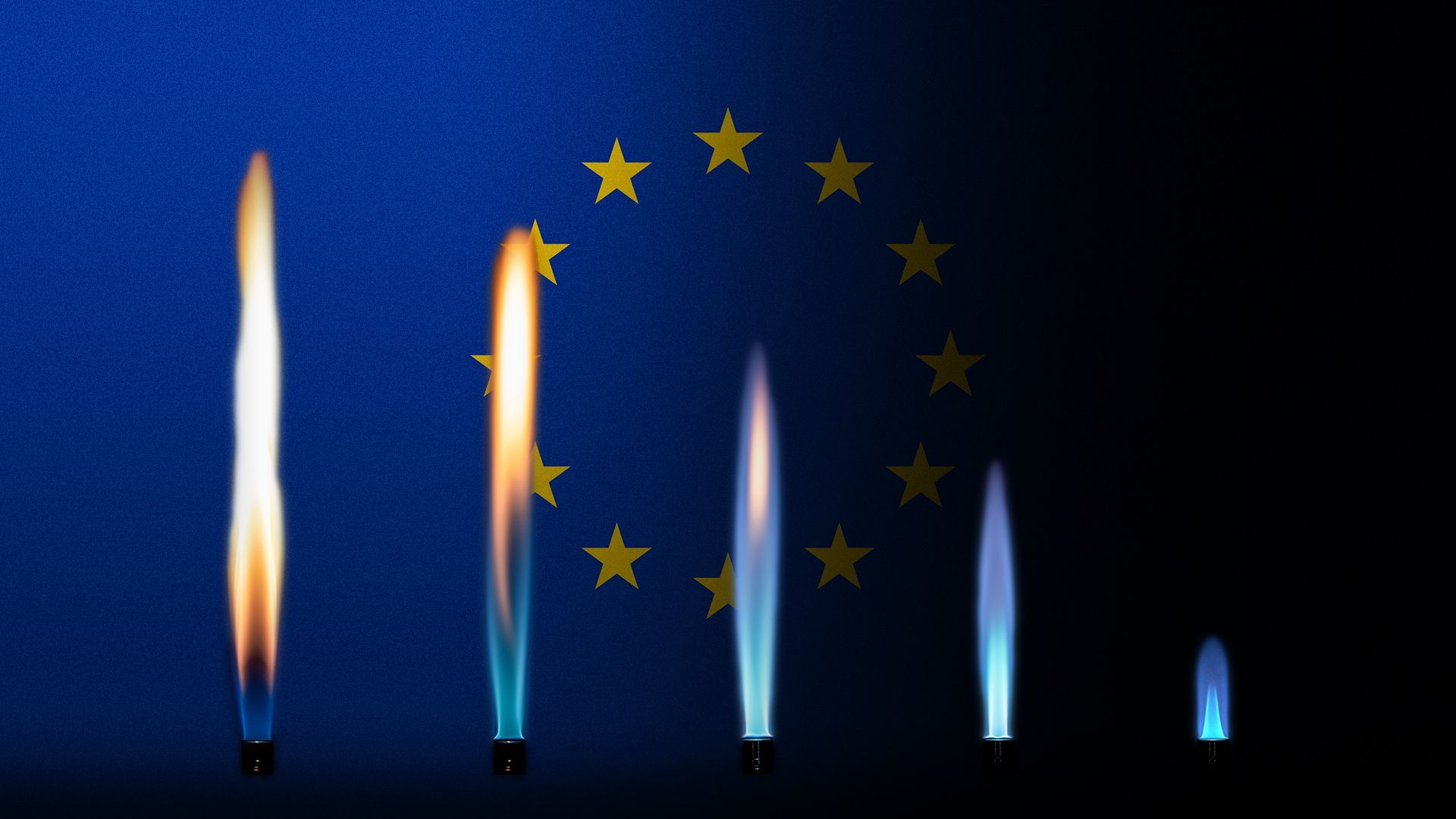 | | | Illustration: Annelise Capossela/Axios | | | | Amid a full-on energy crisis exacerbated by the war in Ukraine, European countries are taking a range of steps akin to wartime restraints to cut consumption, Axios' Matt Philipps writes. Here's a sampling: - In Germany, landmarks including the Brandenburg Gate and Cologne's magnificent cathedral will no longer be lit at night. Hot water is being shut off in public buildings, and Augsburg is even turning off some traffic lights.
- Spain is ordering shops and public buildings to shut off the lights at 10pm and banning air conditioning below 80 degrees Fahrenheit. Italy is also limiting air conditioning in schools and public buildings.
- France is forcing air-conditioned shops to keep their doors closed, and banning illuminated signs between 1am and 6pm.
- Yes, but: France gets 70% of its energy from nuclear power, putting it in a better position than Germany, which is shutting down its remaining nuclear plants.
- The U.K.'s energy regulator is raising the cap on household energy bills by a whopping 80%.
- The EU's 27 member states agreed in July to voluntarily cut gas consumption by 15% between August and March. Mandatory cuts could be imposed if the energy supply situation worsens.
- Meanwhile... Norways' Nordic neighbors are protesting Olso's "nationalistic" decision to curb exports to protect its own supply.
What we're watching: Whether the energy crisis — which could worsen during winter — reduces public and political support for sanctions on Russia. What's next: Russia's Gazprom says it will shut down the Nord Stream 1 pipeline on Wednesday for three days of unscheduled maintenance. Go deeper on the energy crisis. |     | | | | | | 6. Two to watch: U.S. looks to the Arctic; Russia-China war games | 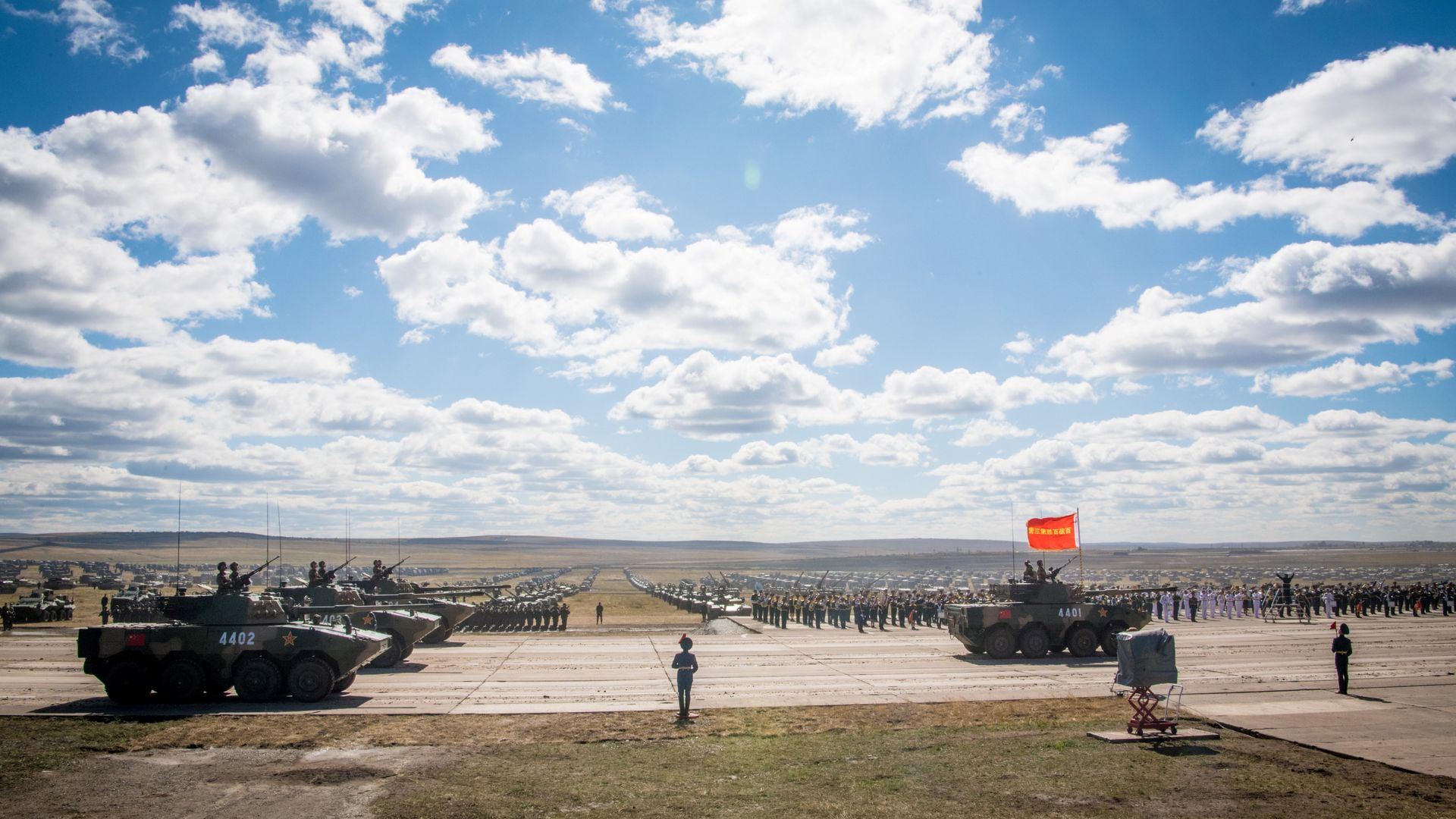 | | | Russian, Chinese, and Mongolian troops during the 2018 Vostok exercises. Photo: Mladen Antonov/AFP via Getty Images | | | | 1. The Biden administration announced Friday it will nominate an ambassador-at-large for the Arctic, raising the profile of American policymaking for the region, Axios' Andrew Freedman writes. Why it matters: The move comes at a time of increased militarization in the far north, with NATO members squaring off against Russia, and at a time of rapid climate change that is making the Arctic more accessible. - In recent years, Russia has moved to establish multiple military bases in its Arctic territory, while NATO members have conducted drills and worked to counter the Russian threat.
2. Russia and China will hold joint military exercises this week in Russia's Far East, underscoring the partnership between Washington's most powerful rivals. - Yes, but: The Russian military's footprint will be dramatically scaled down from the previous exercises in 2018 due to the strains of the Ukraine war, Reuters reports.
- 12 other countries will take part, including India, six former Soviet republics, Nicaragua, and Syria.
|     | | | | | | 7. Stories we're watching | 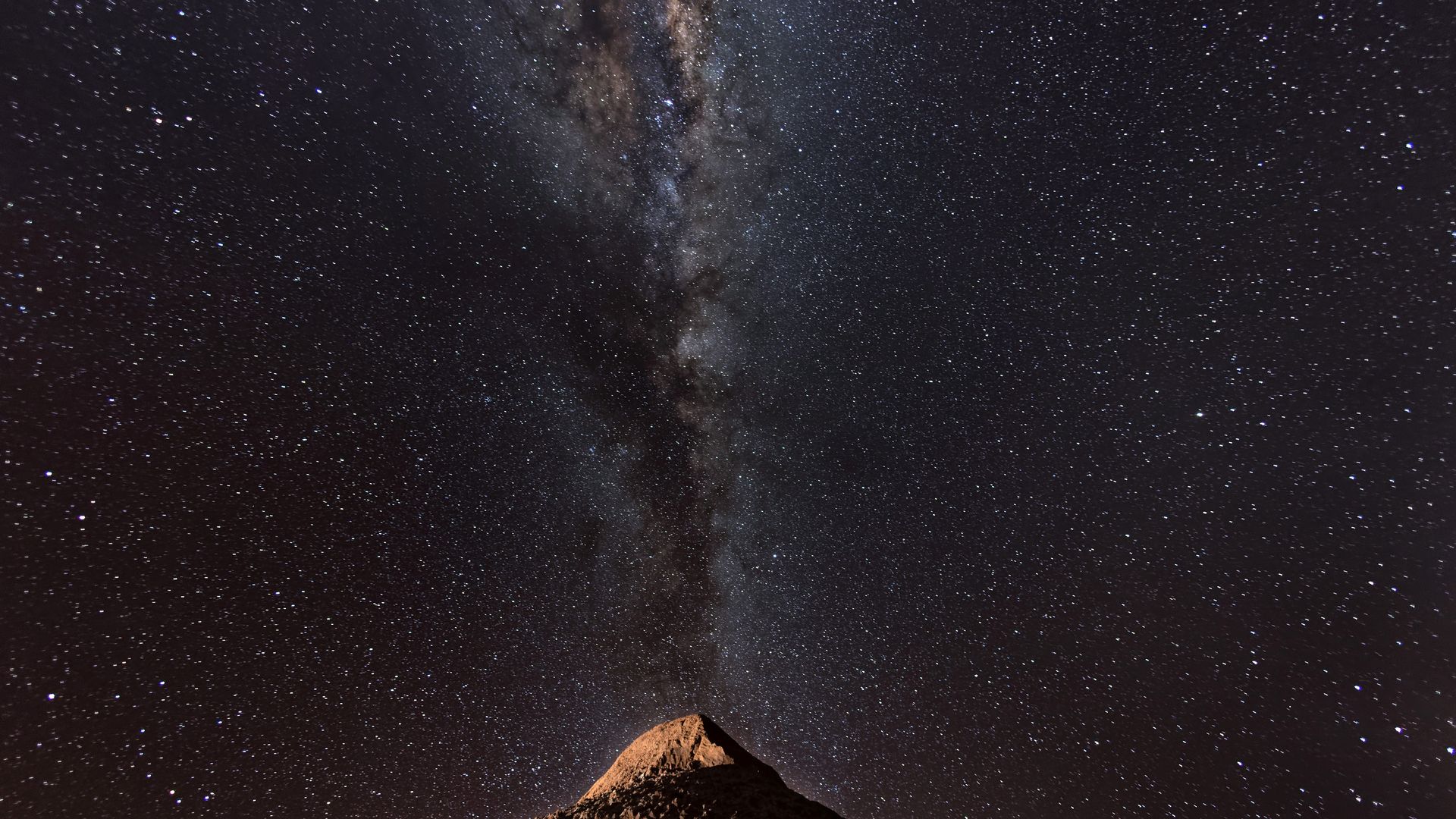 | | | The Milky Way over the Atacama Desert, Chile. Photo: John Moore/Getty Images | | | - U.S. warships sail through Taiwan Strait for first time since Pelosi visit
- Airstrike hits kindergarten in Ethiopia's Tigray region
- The new Jackson Hole consensus
- Study: Greenland ice melt to raise sea levels nearly one foot
- Military option against Iran?
- Israel ramps up pressure on U.S. over Iran deal
- Launch delayed for NASA moon rocket
Quoted: "In the eyes of men, the humble are seen as weak and losers, but in reality, they are the real winners because they are the only ones who trust completely in the Lord and know His will." — Pope Francis, praising the humility of a 13th-century pope who resigned — and thus fueling speculation that he will soon step down himself — during a visit to the former pontiff's burial site. |     | | | | | | A message from Babbel | | Get conversational in a new language | | |  | | | | Babbel offers bite-sized, 10-minute language lessons developed by over 150 linguists and voiced by native speakers. The impact: Users report being able to have a basic conversation after just three weeks of daily practice using Babbel. For a limited time, get up to 55% off your subscription. | | | | Answers: 1. Champagne; 2. Roquefort; 3. Camembert; 4. Dijon mustard; 5. Salad Niçoise (from Nice); 6. Quiche Lorraine; 7. Beef Bourguignon (from Burgundy); 8. Bordeaux; 9. Poire à la Beaujolaise (from Beaujolais); 10. Cognac. |  | | Are you a fan of this email format? It's called Smart Brevity®. Over 300 orgs use it — in a tool called Axios HQ — to drive productivity with clearer workplace communications. | | | | | | Axios thanks our partners for supporting our newsletters. If you're interested in advertising, learn more here.
Sponsorship has no influence on editorial content. Axios, 3100 Clarendon Blvd, Arlington VA 22201 | | | You received this email because you signed up for newsletters from Axios.
Change your preferences or unsubscribe here. | | | Was this email forwarded to you?
Sign up now to get Axios in your inbox. | | | | Follow Axios on social media:    | | | | | |
No comments:
Post a Comment